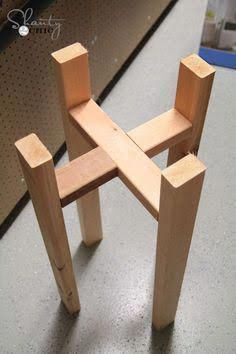Are you interested in starting a career in woodworking? Entry level woodworking jobs offer a great opportunity for individuals to enter the industry and gain valuable experience. These roles provide a foundation for learning the essential skills and techniques needed to excel in the field of woodworking.
Entry level woodworking jobs are ideal for those who are passionate about working with wood and creating beautiful pieces of furniture, cabinetry, or other wooden products. Whether you are just starting out or looking to transition into a new career, these positions can be a stepping stone towards a successful future in woodworking.
In this article, we will explore why pursuing a career in woodworking can be a rewarding choice, the skills necessary to succeed in entry level positions, tips for building a standout woodworking portfolio, advice on acing job interviews, common job titles and responsibilities to expect, salary expectations, and potential advancement opportunities within the woodworking industry.
Whether you have limited experience or are looking to expand your skill set, there is sure to be valuable information here for anyone considering entry level woodworking jobs.
Why Pursue a Career in Woodworking?
Woodworking is a craft that has been around for centuries, but its relevance and demand in today’s world are as strong as ever. Pursuing a career in woodworking can offer unique opportunities and rewards for those with a passion for creating beautiful and functional pieces from wood. Whether you are considering a switch in careers or just starting out in the workforce, there are many reasons why entry level woodworking jobs may be the right path for you.
Here are some compelling reasons to consider pursuing a career in woodworking:
- Creativity and Self-Expression: Woodworking allows individuals to express their creativity through the design and creation of unique pieces. From furniture to sculptures, the possibilities are endless.
- Hand-On Skills Development: Working with wood requires precise measurements, cutting, sanding, and finishing techniques. These hands-on skills can be honed over time and provide a sense of satisfaction when seeing the finished product.
- Sustainable Craftsmanship: In an era where sustainability is increasingly important, woodworking offers the opportunity to work with natural materials that can be sourced responsibly. This can appeal to those who are environmentally conscious.
In today’s digital age, there is a growing appreciation for handmade goods and craftsmanship. By pursuing entry level woodworking jobs, individuals have the chance to create high-quality products that are valued for their uniqueness and character. Whether you dream of working independently as a woodworker or as part of a team within a larger company, the field of woodworking holds numerous possibilities for those willing to put in the effort to master this ancient craft.
Skills Required for Entry Level Woodworking Jobs
When it comes to pursuing entry level woodworking jobs, having the right set of skills is crucial for success in this field. While formal education and training can be beneficial, possessing certain skills can significantly increase your chances of landing a woodworking job. Here are some essential skills required for entry level woodworking jobs:
Attention to Detail
One of the most important skills for any woodworking job is attention to detail. Woodworking often involves intricate designs and precise measurements, so being able to focus on the smallest details is key. Whether you are working on furniture, cabinets, or other projects, paying close attention to every aspect of your work will ensure high-quality results.
Hand-Eye Coordination
Woodworking requires a high level of hand-eye coordination, as you will be working with various tools and machinery to create your projects. From using saws and drills to sanding and finishing techniques, being able to coordinate your hands with your eyes is essential for making accurate cuts and creating seamless finishes.
Problem-Solving Skills
In woodworking, it’s common to encounter challenges or unexpected issues while working on a project. Having strong problem-solving skills will help you navigate through these obstacles and find creative solutions. Whether it’s figuring out how to fix a mistake or optimize the design of a piece, being able to think critically and come up with solutions on the spot is an invaluable skill in entry level woodworking jobs.
Tips for Crafting an Impressive Woodworking Portfolio
Woodworking portfolios are essential tools for showcasing your skills and experience to potential employers in the woodworking industry. A well-crafted portfolio can make a strong first impression and increase your chances of landing entry level woodworking jobs. Here are some tips to help you create an impressive woodworking portfolio:
Highlight Your Best Work
When putting together your woodworking portfolio, be sure to include high-quality images of your best projects. Whether it’s furniture, cabinetry, or decorative items, choose pieces that demonstrate your craftsmanship and attention to detail. Clearly label each project with a brief description highlighting the materials used, techniques applied, and any challenges overcome during the build.
Showcase Your Range of Skills
Include a variety of projects in your portfolio to showcase the breadth of your skills as a woodworker. Whether you specialize in handcrafted joinery, wood carving, or CNC machining, make sure to feature examples of different techniques and styles. This will demonstrate your versatility as a woodworker and show potential employers that you are capable of tackling diverse projects.
Provide Context and Personalize Your Portfolio
In addition to images of your work, consider adding a personal statement or artist’s statement that explains your passion for woodworking and what inspires you creatively. Including sketches, design drawings, or photos from the construction process can also add depth to your portfolio and give insight into your creative process. Personalizing your portfolio will help potential employers get a sense of who you are as a woodworker and why you would be a valuable addition to their team.
By following these tips and putting thought into crafting an impressive woodworking portfolio, you can stand out among other applicants for entry level woodworking jobs and increase your chances of securing employment in this rewarding industry.
Interview Tips for Landing Entry Level Woodworking Jobs
When applying for entry level woodworking jobs, it is essential to showcase your skills and passion for the craft during the interview process. Here are some tips to help you make a lasting impression on potential employers:
1. Research the Company: Before your interview, take the time to research the company and familiarize yourself with their woodworking projects, values, and mission. This will demonstrate your interest in the position and show that you are serious about pursuing a career in woodworking.
2. Showcase Your Skills: During the interview, be prepared to discuss your experience with different tools, materials, and woodworking techniques. Highlight any relevant projects you have completed, whether as part of a formal program or as a hobbyist. Providing concrete examples of your woodworking abilities will help you stand out as a candidate.
3. Demonstrate Your Work Ethic: Employers are looking for candidates who are hardworking, reliable, and willing to learn. Be sure to convey your dedication to mastering the craft of woodworking and your willingness to take on new challenges. Share instances where you have overcome obstacles or demonstrated initiative in previous roles or projects.
By following these interview tips and showcasing your passion for woodworking, you can increase your chances of landing entry level woodworking jobs that align with your career goals and aspirations. Remember to also dress professionally, arrive on time, and confidently communicate why you are the best fit for the position.
Common Entry Level Woodworking Job Titles and Responsibilities
Entry level woodworking jobs offer a great opportunity for individuals to kickstart their career in the woodworking industry. These positions are often the starting point for aspiring woodworkers to gain experience, develop their skills, and grow within the field. Some common entry level woodworking job titles include apprentice woodworker, woodworking assistant, and shop helper.
As an apprentice woodworker, individuals can expect to learn the fundamentals of woodworking by assisting experienced craftsmen with various tasks such as cutting, sanding, assembling, and finishing wood products. This role requires a willingness to learn, attention to detail, and a passion for working with wood. Apprentice woodworkers may also be responsible for maintaining tools and equipment, keeping the workshop organized, and following safety protocols.
Woodworking assistants typically work closely with lead woodworkers to support them in all aspects of projects. This can involve preparing materials, operating machinery, measuring and cutting wood pieces accurately, and ensuring that deadlines are met. Woodworking assistants play a crucial role in helping projects run smoothly and efficiently. Additionally, shop helpers provide valuable assistance by performing tasks like cleaning the workshop, arranging materials, handling deliveries, and other general duties as needed.
| Common Entry Level Woodworking Job Titles | Responsibilities |
|---|---|
| Apprentice Woodworker | Assisting experienced craftsmen with various woodworking tasks. |
| Woodworking Assistant | Supporting lead woodworkers in project preparation and execution. |
| Shop Helper | Performing general workshop duties to ensure smooth operations. |
Salary Expectations for Entry Level Woodworking Jobs
Entry Level Woodworking Jobs are a popular choice for individuals looking to start their career in the woodworking industry. While salary expectations for entry level positions may vary depending on factors such as location, company size, and experience, it is important to have a general understanding of what to expect when entering this field.
Typically, entry level woodworking jobs can offer a starting salary ranging from $25,000 to $40,000 per year. These positions may include roles such as woodworking assistants, cabinet maker apprentices, or furniture finishers. It is important to note that with dedication and experience, there is room for growth within the industry.
Although entry level woodworking jobs may not offer high starting salaries compared to other industries, many individuals are drawn to the craft and creativity involved in working with wood. Those who have a passion for woodworking often find fulfillment in creating unique pieces and seeing their projects come to life. Additionally, many woodworking professionals enjoy the hands-on aspect of the job and take pride in producing high-quality products.
Advancement Opportunities in the Woodworking Industry
In conclusion, the woodworking industry offers a multitude of advancement opportunities for individuals starting their careers in entry level woodworking jobs. With dedication, hard work, and a passion for craftsmanship, aspiring woodworkers can progress to higher positions within the industry. From becoming specialized artisans in areas such as furniture making or cabinetry to taking on leadership roles as project managers or workshop supervisors, there is no shortage of paths for growth and development in the field of woodworking.
Furthermore, as technology continues to advance, there are also opportunities for woodworkers to explore innovative techniques and tools that can enhance their skills and broaden their career prospects. Staying up-to-date with the latest trends in woodworking equipment and practices can set individuals apart in the industry and open doors to new and exciting job opportunities.
Ultimately, pursuing a career in woodworking not only allows individuals to express their creativity and craftsmanship but also provides a fulfilling career path with endless possibilities for growth and advancement. By honing their skills, building a strong portfolio, excelling in interviews, and demonstrating a passion for the craft, entry level woodworkers can embark on a rewarding journey towards achieving their professional goals within the diverse and ever-evolving woodworking industry.
Frequently Asked Questions
How Do I Start a Woodworking Career?
Starting a woodworking career requires a combination of passion, skill development, and business acumen. Begin by acquiring foundational woodworking skills through classes or apprenticeships. Explore different types of woodwork to find your niche and build a portfolio to showcase your work. Consider setting up a workshop, investing in quality tools, and marketing your services to attract clients.
Is Woodworking a High Income Skill?
Woodworking can be a high-income skill for those who are skilled, experienced, and able to market their services effectively. Experienced woodworkers who can create high-quality custom pieces or offer specialized services like restoration or fine woodworking have the potential to earn a significant income.
It also depends on factors like location, demand for woodworking services, and the target market.
What Is Called Carpentry?
Carpentry is a skilled trade that involves working with wood to construct buildings, furniture, cabinetry, and other wooden structures. Carpenters use tools like saws, drills, chisels, and planes to cut, shape, join, and finish wood materials according to blueprints or design specifications.
Carpentry encompasses various specialties such as rough carpentry (framework), finish carpentry (trimming), cabinetmaking (furniture), and more. Skilled carpenters have diverse opportunities in construction, renovation, woodworking industries.

Hi everyone! I’m a woodworker and blogger, and this is my woodworking blog. In my blog, I share tips and tricks for woodworkers of all skill levels, as well as project ideas that you can try yourself.





